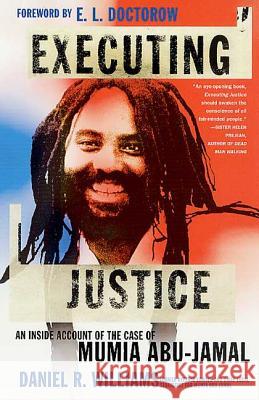Executing Justice: An Inside Account of the Case of Mumia Abu-Jamal » książka
Executing Justice: An Inside Account of the Case of Mumia Abu-Jamal
ISBN-13: 9780312283179 / Angielski / Miękka / 2002 / 432 str.
Mumia Abu-Jamal is an award-winning journalist and author of three well-received books and many essays. He is also a death-row inmate, awaiting execution in Pennsylvania for allegedly killing a police officer in 1981. For many around the world, he is an inspired leader and the centerpiece to a revived progressive movement critical of our justice system and escalating global economic inequities. For others, he is a cold-blooded killer who has duped millions, including a vast array of Hollywood celebrities, writers, intellectuals and world political leaders, into believing that he is a political prisoner falsely imprisoned. Whatever the outlook, he and his case have become a flashpoint in the ever-raging debate over capital punishment in this country and a symbol of what is wrong with our criminal justice system.Here, for the first time, the story of Mumia Abu-Jamal's trial and his struggle to gain his freedom has been told. Executing Justice takes us inside the courtroom where a fierce and skilled prosecutor wove a damning narrative of a young black radical who brutally murdered a young white police officer in the red-light district of Philadelphia, and then later boasted about the killing. It was, the prosecutor said, the strongest murder case he's ever tried. Daniel R. Williams, defense lawyer and chief legal strategist for Mumia Abu-Jamal, invites us to ask: why has this case engendered such enormous attention and aroused the passions of people worldwide? Executing Justice is the story of how the death penalty really works in this country--not from the perspective of appellate judges, academics, or politicians who pontificate about the pros and cons of capital punishment, but from ground zero, within the pit of the courtroom where the war over life and death is fought. It is also a story of one of the most remarkable trials in our history. Above all, Executing Justice is an honest, at times confessional, book that seeks not to preach, but to raise questions about what we expect from our legal system and the depth of our commitment to capital punishment as a form of executing justice.











